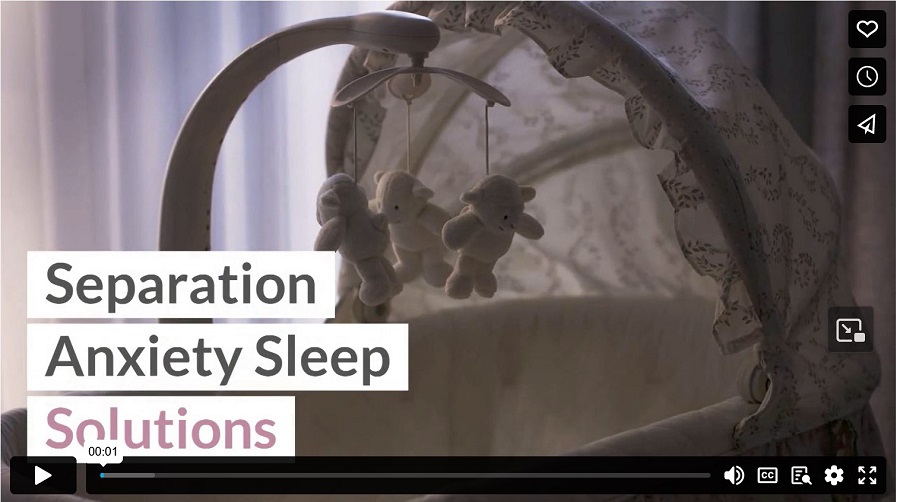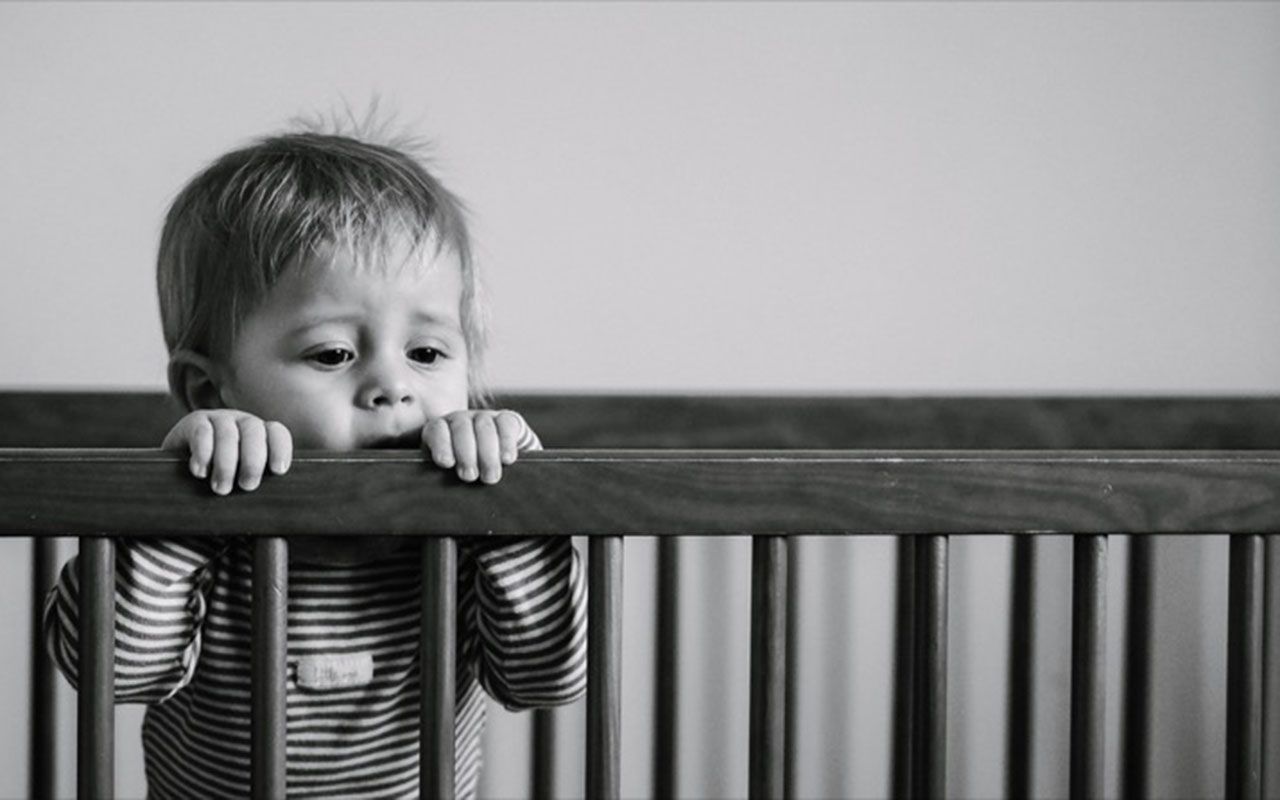Even though your baby hasn’t experienced much yet, he feels anxiety just like you can. His anxiety doesn’t stem from health, taxes, and mortgage payments the way yours might; instead, it usually manifests in the form of separation anxiety. After all, parents are a baby’s entire world, so it can be very frightening when they suddenly disappear from view. Babies legitimately think that you’re not coming back, and they can be even more alarmed if someone unfamiliar is in the room, such as a babysitter.
Understanding object permanence is a major developmental milestone that babies grasp when they are around eight months old. Before object permanence, babies think that something that disappears from view just *vanishes* and that doesn’t seem to bother them. Out of sight, out of mind. However, once babies develop object permanence, they understand that an object (or person) is physically somewhere, even if it isn’t physically in front of them. That concept introduces the idea that something might go away and not come back, which is terrifying when you are a baby who depends entirely on another person.
Some babies experience separation anxiety as early as four months old, but it doesn’t usually hit until they are about eight months old (if it hits at all). During the day, separation anxiety shows itself in the form of clinginess, stranger danger, and crying whenever a parent leaves the room. At nighttime, it can manifest in bedtime tantrums and multiple nighttime wakings. This can be extremely frustrating if your child was sleeping through the night and suddenly turned into a pint-sized monster at bedtime.
The good news is that separation anxiety generally fades away around age three because kids develop a concept of time and trust. Still, it’s hard to be patient when you’re tired, so what can you do now to alleviate your child’s stress at night? Here are a few tips:
- Get lots of cuddles in: You might think that getting extra cuddles in during the day would exacerbate the separation anxiety at night, but that’s not necessarily true. Working in a lot of extra daytime cuddles in the form of reading books, snuggling on the couch, infant massage, and other one-on-one activities right before bed can help your baby sleep better at night.
- Play games that enforce object permanence: A great way to have some quality playtime and work on separation anxiety is to play games that enforce object permanence. Hide-and-seek, peek-a-boo, and find-the-toy are fun games that help your baby understand that people and objects are still around even when your baby can’t see them.
- Keep your chin up: Babies have a knack for picking up on stress in adults, and few things are more stressful than dealing with a baby who is losing his mind during bedtime. One of the best things you can do is keep your chin up and a smile on your face. Speak reassuring words to your child, but don’t fuss over him or have a worried expression. It’s ok (and encouraged!) to comfort your child when he is upset, but don’t create new habits that you’ll just have to break eventually (ex: reverting back to rocking him to sleep).
- Have a consistent bedtime routine: A consistent bedtime routine goes a long way in helping curb separation anxiety. Children find comfort in having a schedule that varies little from day to day, and keeping a short, consistent nightly routine can help your child feel ready for sleep.
- Put your baby to sleep drowsy but awake: It’s tempting to rock/hand hands with/nurse your child to sleep and then transfer him to his bed, but you shouldn’t do that. Think about it: his last memory was falling asleep with you, then he wakes up without you in a completely different place? That’s enough to make anyone panic! Even Dr. Ferber (of the Ferber Sleep Method) suggested that using these crutches to get your child to sleep is dishonest and should be avoided.
- Sleep train: There are many different styles of sleep training, and it is definitely ok to use them when a child has separation anxiety. In fact, using some sleep training techniques might even help a kid that won’t sleep through the night due to anxiety. The Cry It Out method works the fastest, but it may not be appropriate for every child and parenting style. Ferber sleep training is a gentler method that takes a few days longer to implement, and there are even several no-cry methods.
Separation anxiety is frustrating for both parents and kids, but it’s a normal developmental milestone, and it shows a good attachment between child and caregiver. The good news is that separation anxiety doesn’t last forever, and you can do things to help alleviate the stress. Our pediatric sleep trainers have a wealth of experience helping kids and parents get quality sleep even when separation anxiety is in full force. If you need help or ideas, don’t hesitate to contact us today!
Infographic
Do you ever wonder why babies cry when their parents disappear from their sight? It’s because they think they won’t see them ever again. They are yet to understand the concept of object permanence, which is often why they have separation anxiety. It can be frustrating and stressful for both parents and children. What can you do? Here are some helpful tips.

Video



